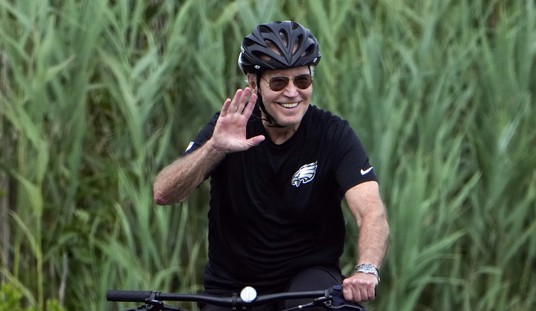Can you say … Sherman Act? I knew you could! Twitter CEO Jack Dorsey offered a semi-defense, semi-mea culpa over his decision to lock out Donald Trump and thousands of his followers from the platform. In a Twitter thread (natch) overnight, Dorsey argued that he faced the real potential of “offline harm” from “online speech,” especially after the Capitol riot.
However, Dorsey also acknowledged that his decision was based in part on the concept that people could always choose another platform. He professed dismay over the decision of other “foundational internet tool providers” locked out those alternatives at the same time. “I do not believe this was coordinated,” Dorsey said, making him part of a very small minority:
Having to take these actions fragment the public conversation. They divide us. They limit the potential for clarification, redemption, and learning. And sets a precedent I feel is dangerous: the power an individual or corporation has over a part of the global public conversation.
— jack (@jack) January 14, 2021
This concept was challenged last week when a number of foundational internet tool providers also decided not to host what they found dangerous. I do not believe this was coordinated. More likely: companies came to their own conclusions or were emboldened by the actions of others.
— jack (@jack) January 14, 2021
All within the same 24 hours? Riiiiiight. Even if there was no overt collusion, which is far from excluded at the moment, it looks pretty clear that Twitter’s decision sent signals to all of the other platforms and providers to follow suit. The breadth of that industry activism to silence political speech demonstrates that the “check” on their power described by Dorsey is essentially meaningless. Whether Dorsey thinks there was coordination or not is beside the point, too — the industry clearly has monopolistic power and is not hesitant any more to deploy it.
The best check and balance would have been to not allow these companies to become “foundational internet tool providers” in the first place. More robust enforcement of anti-trust law and prevention of widespread consolidation in the tech sector would have produced a much more robust series of consumer options, with far more hands on the gates than we have now. We had seen the warning signs for a few years about the dangers of putting that economic and political power into too few hands, and now the bill truly has become due.
The Wall Street Journal ran a column yesterday from Vivek Ramaswamy and Jed Rubenfeld arguing that democracy is under attack not just from the mobs that invaded the Capitol, but also by this tech “plutocracy”:
American democracy is under siege from Silicon Valley’s political plutocracy. Next week Mr. Trump will be a private citizen without a Twitter account. Our new class of corporate monarchs will still control whether and how Americans can hear from the president—or anyone else. We have devolved from a three-branch federal government to one with a branch office in Silicon Valley. But there’s no democratic accountability for Jack Dorsey and Mark Zuckerberg.
Hard cases make bad law, and Mr. Trump presented America with a hard case last week. The breach of the Capitol is a stain on American history, and Silicon Valley seized on the attack to do what Congress couldn’t by suppressing the kind of political speech the First Amendment was designed to protect.
There’s more at stake than free speech. Suppression of dissent breeds terror. The answer to last week’s horror should be to open more channels of dialogue, not to close them off. If disaffected Americans no longer have an outlet to be heard, the siege of Capitol Hill will look like a friendly parley compared with what’s to come.
Ordinary Americans understand the First Amendment better than the elites do. Users who say Facebook, Twitter and Google are violating their constitutional rights are right. Aggrieved plaintiffs should sue these companies now to protect the voice of every American—and our constitutional democracy.
Conservatives need to learn the lesson of the Sherman Act too, especially in the high-tech era. They have traditionally championed laissez-faire economic policies that winked at mass consolidation in all industries while arguing for smaller government. Allowing that much economic power to concentrate into too few hands creates political power that naturally supports bigger government to enable rent-seeking behavior, however. Conservatives just learned that hard lesson, not for the first time, and definitely not for the last. It’s time to unwind these consolidations, especially in the speech arena, and break the corporate stranglehold on political speech.








Join the conversation as a VIP Member